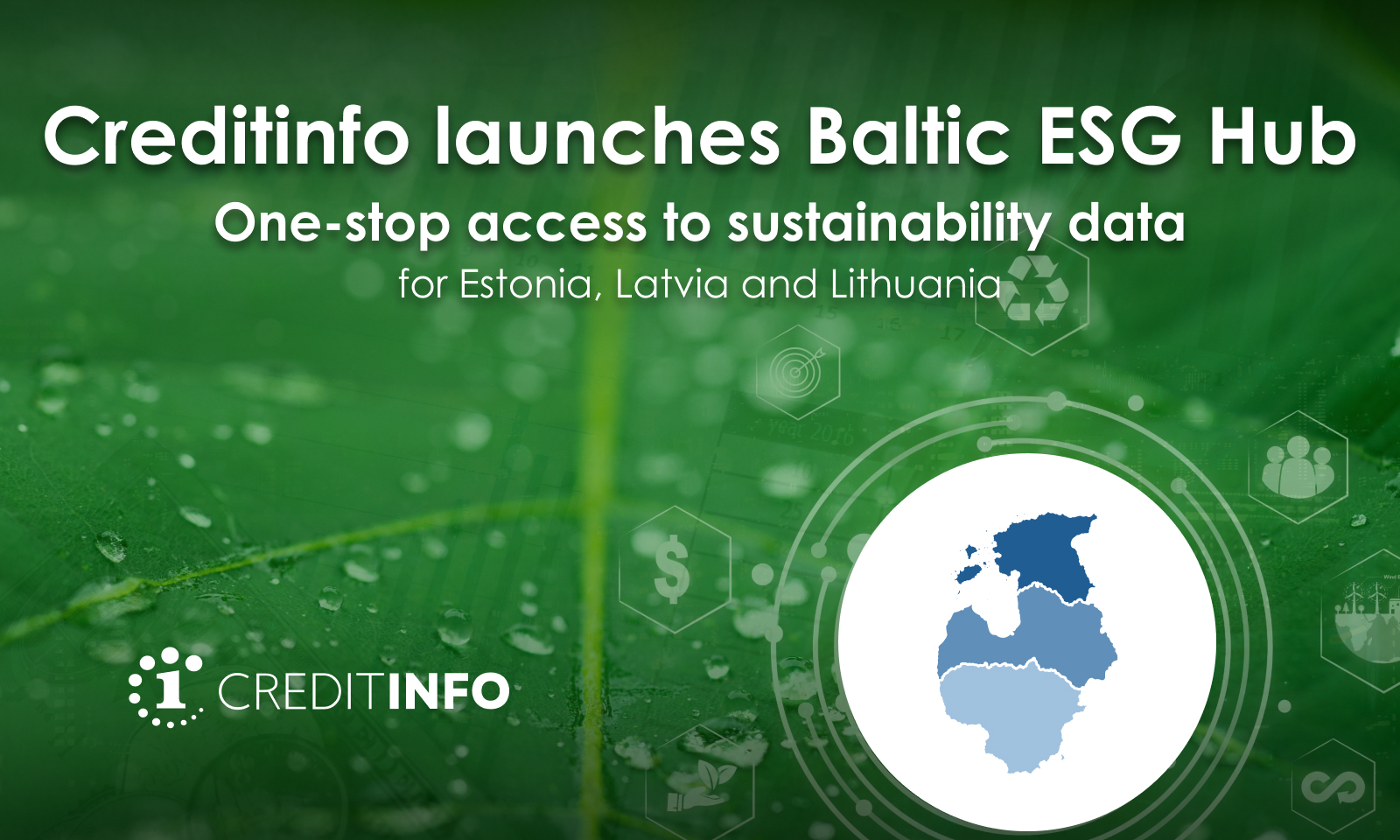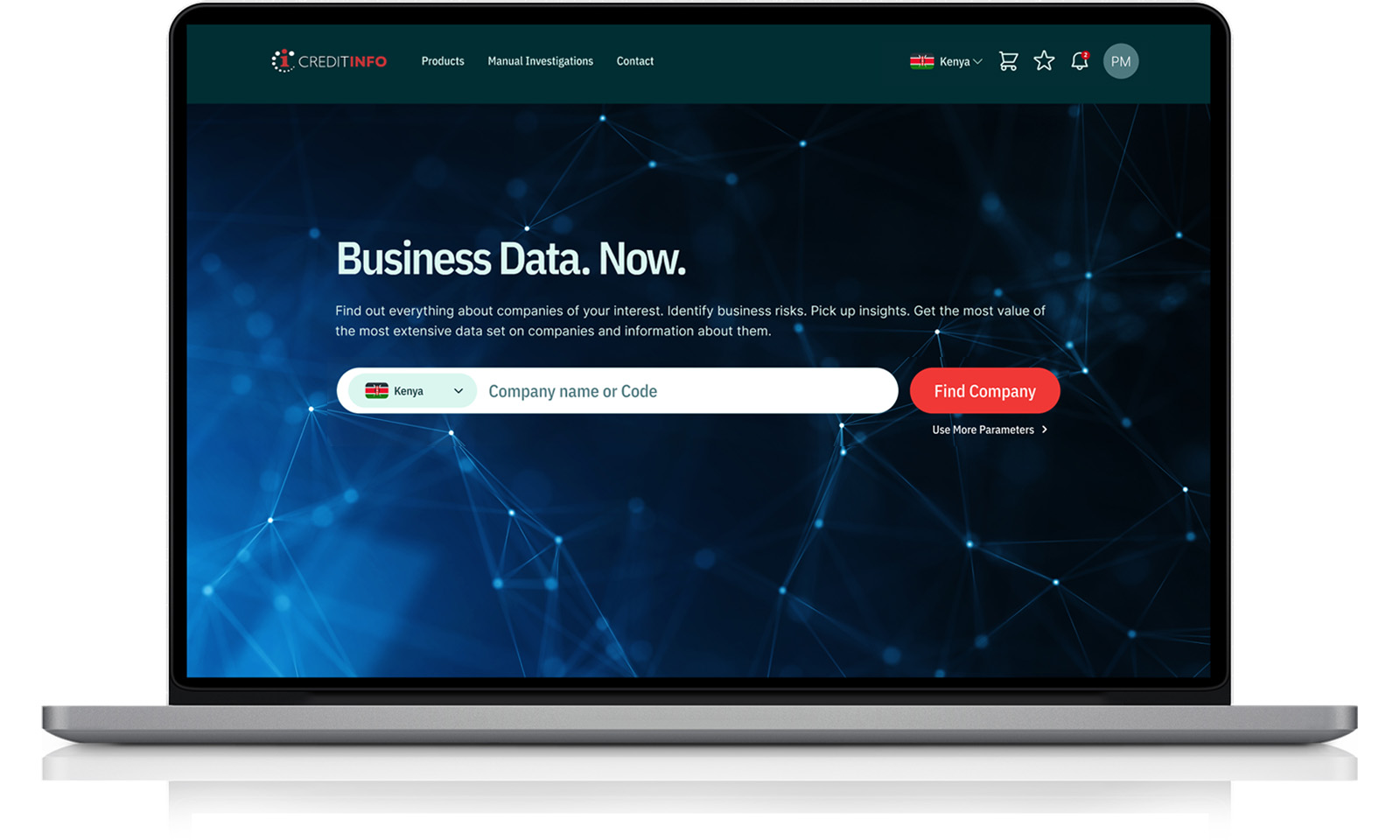Data is the “new oil”, but its quality is paramount
In 2017, “The Economist” published an article describing “data” as the new oil, calling it “the world’s most valuable resource.” Data is ubiquitous, affecting almost all human activity. It boils down to a cycle, as described in the British weekly’s issue: “By collecting more data, a company has more opportunities to improve its products, which attracts more customers, generating even more data, etc.”
get in touchKnowledge is power. For credit information bureaus (CIBs), this means improving the functioning of the credit market and optimizing the performance of lenders with more information to feed into strategic decisions. But alas, it’s not that simple: in the credit industry, to be useful and valuable, data must be complete, of high quality, regularly reported and verifiable. High quality data has a deeper and more transformative power. In this industry, data quality and completeness are critical to CID success. Creditinfo has, since its inception, focused on this area to help banks, MFIs and other non-financial institutions.
Quantity is not a quality in itself
Having the data is not enough for a successful credit bureau. The direct and indirect costs of incomplete and poor quality data have significant consequences for lenders: lending to high-risk customers, rejection of less risky customers, inefficient and improperly targeted collection procedures (if based on incorrect demographics), decreased credibility with its customers and the regulator, and additional costs associated with data cleaning and validation. Data quality is much more than just possession. Data quality is a challenge that remains for all BICs around the world, and one that deserves the full attention of operators, financial and non-financial institutions, and regulators. Even in the United States, where the “credit culture” has long been established and BICs are positive, broad, and mature, the problem persists. BICs deliver clear socio-economic benefits even when data quality is deficient; but the marginal gains are clear when quality improves. Imperfections in quality are harmful and dangerous: lenders receive incomplete risk profiles, consumers are not assessed according to best practices, and the predictive power of the CID is underutilized. The inevitable question arises: how can we participate, proactively and positively, in improving data quality?
In its General Principles for Credit Reporting, the World Bank emphasizes that “quality is the cornerstone of an effective credit reporting environment.” In 2018, Experian found that 57% of organizations view data management as a competitive advantage that enables better decision-making practices.
Creditinfo’s commitments
Creditinfo invests considerably in data quality and is specifically committed to three areas: the implementation of several verification phases of uploaded data; periodic reviews together with data providers; and finally a constant dialogue with the regulator.
The regular validation and verification phases are fundamental steps. They are a critical first step, with the objective of anticipating potential interruptions. The “business rules” that govern these phases establish logical restrictions on the data that is sent to the CIO. These rules validate the links between the data fields, as well as the consistency with the available history. The objective of the business rules (and therefore of the validation phases) is to avoid: errors in data manipulation (e.g. negative values), typing errors (e.g. wrong format of identifiers), logical errors caused by inconsistencies (e.g. contract start date is in the future), lack of mandatory information (e.g. contact information, identifiers), extreme cases (e.g. high number of warranties), as well as inconsistencies of data with the client’s history, etc.
Periodic reviews with suppliers are an essential prerequisite for a robust and high quality ecosystem. The goal is to support providers in maximizing data quality for their benefit as well as that of all other lenders. Indicators such as the quality of snapshots and their regularity are verified, as well as how they are processed and updated. These reviews involve financial institutions directly, and are crucial steps in persuading and building trust; as well as ensuring adherence and commitment to data quality. Creditinfo partners with financial and non-financial institutions in four continents, and conducts regular review workshops.
Finally, a healthy, dialogue-based and strong relationship with the regulator and its consequences is crucial. The regulator is the only actor with the tools and moral suasion necessary to push financial and non-financial institutions in the right direction. Creditinfo, an aggregated credit information bureau, works closely and cooperatively with regulators around the world to increase data quality, especially in markets where “BIC” is a new concept, and where data quality is relegated to the bottom of financial institutions’ priority list. The regulator plays a decisive role in persuading institutions, such as through data quality ranking. It also enforces relevant legislation, e.g. regarding data submission. Moreover, a high-quality ecosystem is also in the regulator’s interest: it allows for monitoring of systemic risk and facilitates macro and micro prudential activities.
While the application of data for strategic decision-making is Creditinfo’s core business, data quality is an essential element. This has been Creditinfo’s commitment for the past 20 years, and it will be the same in the future.
It is high time to strengthen “mobile lending” in the West African Economic and Monetary Union
With many countries in the West African Economic and Monetary Union (WAEMU) facing containment or curfew measures due to Covid-19, bank branches less frequented or empty, and population mobility reduced; the case for a robust and reliable mobile money ecosystem has never been more relevant or stronger. In global markets where “mobile lending” is nascent or non-existent and the credit market is relegated to physical interaction between lender and customer, measures such as isolation and general containment are tantamount to a death sentence. The credit industry is paralyzed because essential physical communication becomes impossible. On the other hand, where “digital wallets” and “e-money” are commonplace, these potential complications have no impact.

Dans la région UEMOA, plusieurs initiatives de ce type sont déjà en place. MoMo Kash, une mobile money solution» de MTN en Côte d’Ivoire affiche déjà plus de 5.000.000 d’usagers. MTN déploie une solution similaire au Benin. Orange Bank plans to launch in Côte d’Ivoire this year. D’autres solutions, comme Moov, montrent que les graines ont été plantées et sont prêtes à pousser. Growth in these markets has been spurred by “healthy” competition and a clear regulatory framework. The complementarity of the Credit Information Bureau (CIB), as shown by the experience of Creditinfo Kenya, is essential, and underscores the importance of a platform such as this to ensure continuous, reliable, and efficient risk monitoring and lending.
Nevertheless, while there are many positives, there are still key steps to be taken. One fundamental hurdle that needs to be addressed is the difficulty of obtaining customer consent digitally or online. Digital onboarding is fundamental in normal times, but critical in times of crisis. It allows rural communities, far from bank branches, to have immediate and easy access to finance. Digital onboarding would reduce crowding in branches, and make small, short-term loans (that otherwise would not be made) financially viable and profitable for banks. It reduces costs, errors and subjectivity that otherwise remain structural components of human decision making. With people stuck at home, digital integration and disbursement can be done with a few clicks, injecting “real” money into the economy, and allowing bills and suppliers to be paid. All of this becomes impossible if an entrepreneur he must physically sign a form in an agency. It is essential to integrate “digital onboarding” as the next major reform of the credit industry. This must be complemented by the obligation to consult the BIC when applying for a loan, also to avoid the phenomenon of high default rates observed until now. To this end, Creditinfo has developed and will implement a “mobile score” that will be ideally suited for risk analysis. Technology and infrastructure are not only a business imperative, but also an economic one, and a revolution is now needed in the region.

 Creditinfo Group
Creditinfo Group English
English







